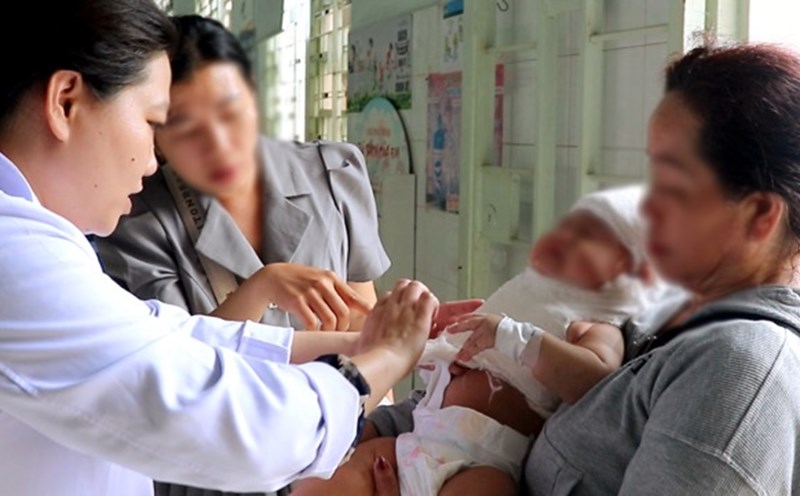Mr. N.V (57 years old, Ho Chi Minh City) after being prescribed by the doctor to examinate some clinical techniques, discovered that Mr. V. had advanced stage stomach cancer, some lesions on the surface of the stomach lining were covered with blood. In the taste buds below the large curved border of the stomach, there is a bulge, measuring 10-12 cm, which has changed the surface structure and blood vessels.
The endoscopist combined with a photoscopy sample to determine the nature of the operation, resulting in Mr. V having tertiary inserted duodenal cancer. Stomach cancer cells have penetrated the lining, starting to spread, deeper into the stomach and surrounding structures. The patient needs surgery to remove the entire tumor, preventing metastasis. After consultation, the doctor prescribed endoscopic surgery using the Da Vinci Xi robot to partially remove the stomach containing the tumor and thoroughly dredge the patient's duodenum.
According to Dr. Do Minh Hung, Director of the Center for Endoscopy and Gastroenterological Surgery, Tam Anh General Hospital, Hagstroke cutting surgery is a complex major surgery for the dialysis of the stomach and surrounding organs with many important large blood vessels, near other important structures such as the pancreas, spleen, duodenum and gallbladder. With the support of robots, doctors can peel off difficult areas accurately and flexibly, dredging all the tripe without damaging neighboring structures.
During the surgery, the doctor noted that the liver, duodenum, bag and duodenum did not have metastatic Notes, the abdomen did not contain fluid, but the largest border was curved, the abdomen had a few tripe. The doctor removed the stomach containing a 5cm tumor and dredged the kidney groups.
After surgery, Mr. V had little pain, the surgical wound was dry, he could walk, eat liquid food, and was discharged after 5 days. The pathological result was an aggressive thyroid cancer in stage 1B, 24 duodenum were inflamed and had not metastasized. The cancer cells were removed and treated thoroughly, so Mr. V did not need further treatment, only had regular check-ups.
Stomach cancer is detected when the cancer cells have not metastasized, treatment is easier, and the prognosis for survival is better. However, in the early stages, the disease often has no symptoms or vague symptoms that are easily confused with common digestive disease. Doctor Hung recommends that people with risk factors such as family history, H. pylori infection, chronic gastric lining atrophy... should be screened for cancer periodically.











